Quincy Landers has a rare and severe birth defect that requires a series of complex surgeries and revisions and a lifetime of challenges. It generally requires frequent procedures and daily maintenance while still often appearing “normal” until the next hospitalization. It’s been called the most complicated birth defect compatible with life. Out of respect for Quincy, we will keep the name of his condition out of this story.
* * *
Quincy was born in Iowa City, Iowa on September 30th, 2004. He was our fourth biological baby in five years. Needless to say, at that point I felt like I was pretty good at it (at least the delivery part). I’d been there, done that and knew what to expect. We went to the hospital expecting it to be much like all of the other births, except it wasn’t. The moment he was born, it was immediately obvious that something was wrong.
When a baby is born, it’s normally a very happy experience with laughing and cheering, but this one was different; the room was was dead silent. After a few moments, I heard a nurse say, “Okay, something’s wrong…” and then they whisked my newborn Quincy out of the room. My doctor was trying really hard to keep me calm. She was saying things like, “I don’t really know what it is, but something’s wrong and we’ll figure it out.” I remember leaning my head back and thinking, “Okay, this is the moment; the moment where everything changes. The trajectory you thought your life was following is now taking a different turn. You’re never going back to what you thought life would be like.”
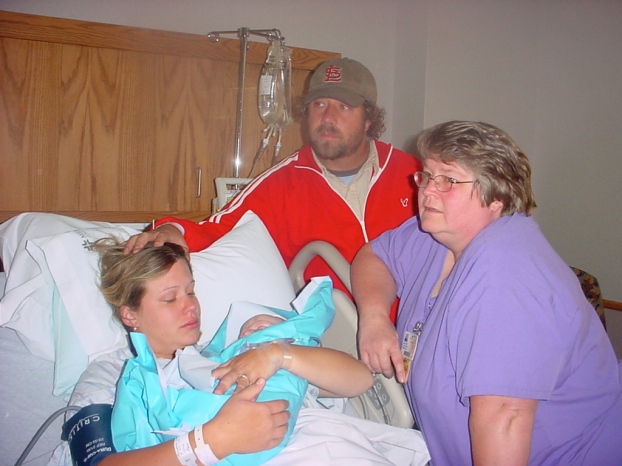
Quincy was stable, so they brought him back in and let me hold him before they transported him to Children’s Hospital. It was only for a few moments, then I had to say goodbye. It took a few hours for them to discharge me and for me to make it over to Children’s, but even then, we were still in the dark as to what his condition was. Once I finally made it over, we still had to wait for a doctor who could give us an official diagnosis. That didn’t happen until sometime after midnight.
When I first heard the name of Quincy’s condition, it was completely unfamiliar to me (and most people) and I was totally unprepared. Had I known beforehand and been able to do some research, I would have done things differently. I knew he was going into a surgery that would leave him in a full body cast, but I couldn’t wrap my head around the fact that it would be months before I would be able to have skin to skin contact with him or even be able to hold him. If I had known that, I never would have put him down those first few days.
At 3 or 4 days old, he went through his first surgery. All I could do was stand by his bed and rub his head. He was heavily sedated, so I couldn’t even pick him up. Then he had several complications so he had to go in for two more surgeries. I was so scared. He was so tiny.


Going into that third surgery, I could sense how nervous the doctors were. It was the middle of the night and we could see them pacing in the hallway, as if they were athletes preparing for a big race. Quincy was 4 or 5 weeks old at this point. For the first couple of surgeries, we had friends come and wait in the waiting room with us. I would be able to get up, visit, go get something to eat and function like a semi-normal human being. But by that third surgery, I just wanted the floor to swallow me up. I remember thinking: I can’t do this. I couldn’t eat and I couldn’t talk to anyone. It was awful. Thankfully, he made it through that surgery successfully and was able to come home eventually, albeit still in a body cast.

“When you are in the middle of a story it isn’t a story at all, but only a confusion; a dark roaring, a blindness, a wreckage of shattered glass and splintered wood; like a house in a whirlwind, or else a boat crushed by the icebergs or swept over the rapids, and all aboard powerless to stop it. It’s only afterwards that it becomes anything like a story at all. When you are telling it, to yourself or to someone else.”
― Margaret Atwood, Alias Grace.
I spent a total of 6 weeks sleeping upright in a chair in the NICU where I saw other families fighting for their baby’s lives too. I watched several other moms that I’d been sleeping next to have to leave without their babies because they didn’t make it. I couldn’t believe that I had lived all these days completely unaware that this was happening in the world. The intense suffering that I had just been face to face with, my own and theirs, became a heaviness I carried home with me. I left the hospital knowing I had a choice: Forget it ever happened or figure out how to make use of that in my life. For me, it was the latter. How am I going to live now with that understanding? And there was no going back. We experienced a piece of God’s heart in those hallways of suffering that we hadn’t known before.
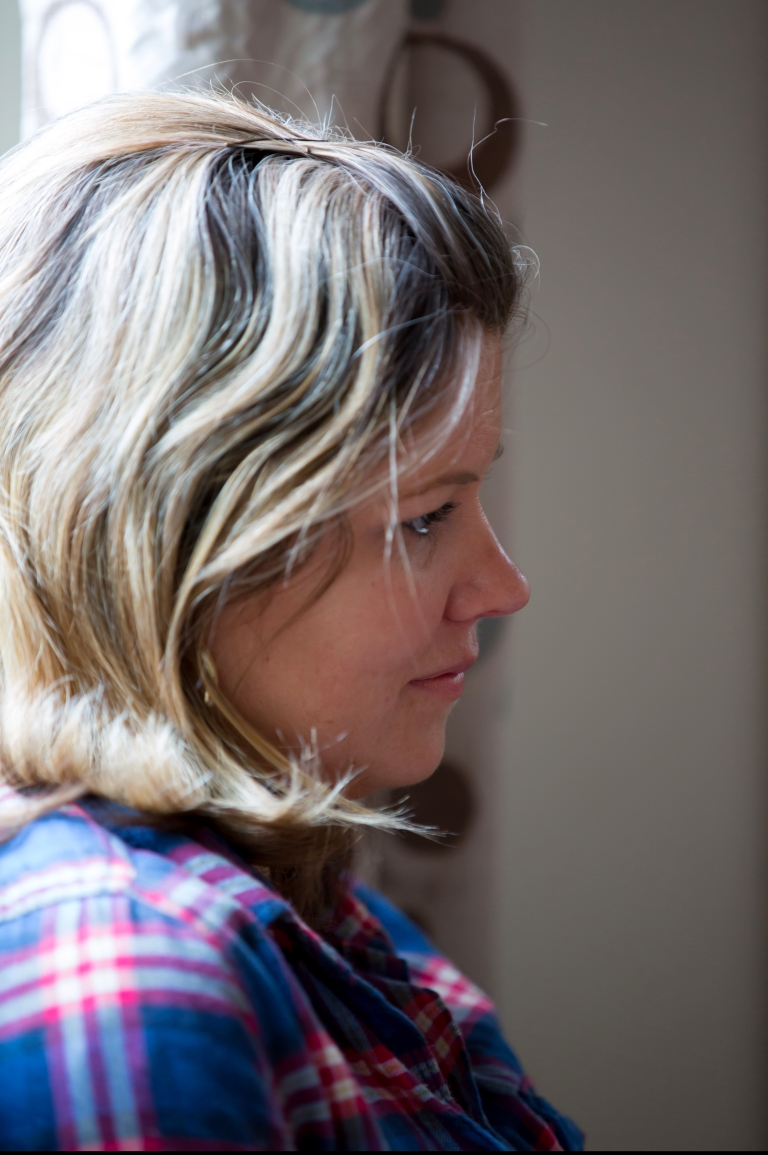
It was around this time that my husband Andy and I made a choice. Rather than trying to keep our family protected and move them as far away from it as possible, we decided to intentionally move towards places of suffering because we now knew that God lived there. We didn’t know exactly what that looked like yet, other than we needed a change of lenses. To begin, we simply started paying attention to the suffering around us rather than shade our eyes from it. It was this change of course that eventually led us down the path of adoption.
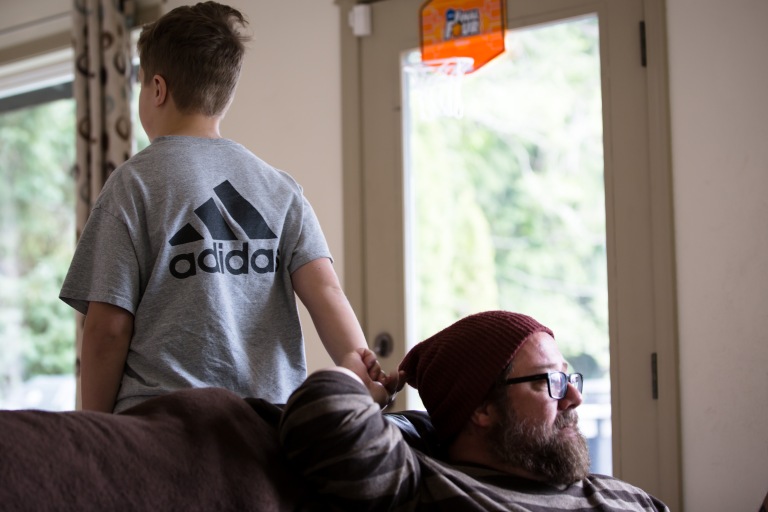
We had some friends living in Sierra Leone who would send us updates and newsletters periodically. I started paying closer attention; trying to see what they were seeing and really listen to what they were saying. The quote by Frederick Buechner kept running through my mind: “The place God calls you to is the place where your deep gladness and the world’s deep hunger meet.” What was that for us? Where was the world’s deep hunger that lined up with our family’s deep gladness? We became more and more aware of how there are kids without parents and how we LOVED being parents. It sounds very simplistic -and it’s not- but that was a natural intersection for us. We eventually found an adoption agency that was trying to process a couple of adoptions but couldn’t promise that the kids would ever be able to come home. Even so, they still desperately needed families that were willing to try… and well, we were willing. We first met Zeke and Kora (twins) when they were 18 months old. The adoption was official and we brought them home when they were 2. Adoption may have always been something on my radar, but I would have never had the courage to pursue it had we not been through what we had with Quincy.
“God was inviting me to use the gifts that made me come alive, to redeem the things that broke my heart.” -Rebekah Lyons
In the summer of 2015, Quincy was due for the next stage in surgical repair. This first attempt at a complicated surgery was a complete failure and the whole thing was a horrific experience. We ended up having to give his body a 6 month break before attempting the surgery again. So, around this time last year we took him in for another try. I had to change everything about the way I prayed with and encouraged him. When we went in the first time, I told him things like, “It’s going to be okay” and “we’re only going to be there for 2 weeks and then out!” But that didn’t happen. Instead, it was horrible and everything went wrong. So this time around, I spoke to him as honestly as I possibly could: “I have no idea how this is going to go. I can’t promise you that this isn’t going to suck really bad or it isn’t going to be painful and that it’s going to go perfectly and there won’t be any complications. BUT, I can promise you that you won’t be alone and whatever happens, I’m going to be there. We’re ALL going to be there.”
It was truly the only thing I could offer him. We’ve had enough blows in life that we understand we can only control and protect our kids from so little. You put Quincy’s story together with Zeke and Kora’s story, which also has many elements of trauma and tragedy, and you end up with this general feeling of “this is not how things are supposed to be”. If we could fix Quincy’s body and just give him ours, we would. If we could take away elements from Zeke and Kora’s story we would, but we can’t. Instead, we can promise them this: You’re not going to be alone. By no means do we have this down, but we strive that our kids would learn this: to pull together, embrace sufferings, do it well, and do it together. This has become one of our rallying cries as a family. Thankfully, that last surgery was successful and Quincy was able to leave after two weeks.
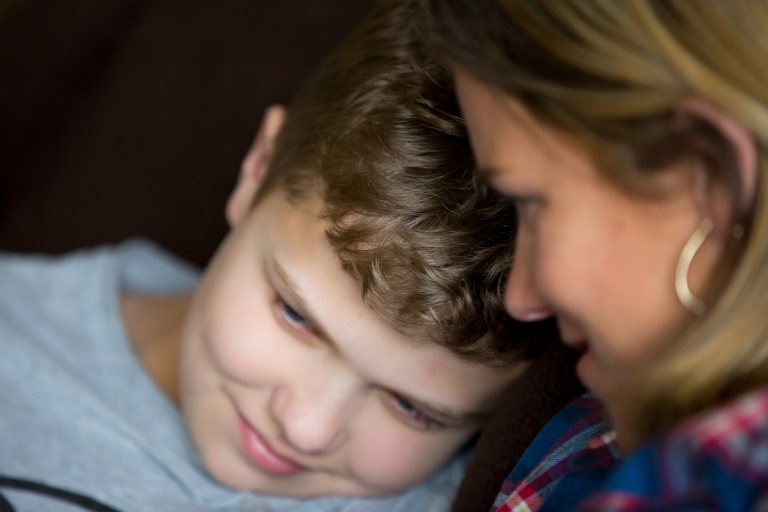
In the big scheme of things, Quincy lives a very normal life. He plays basketball with his brothers, goes to school, etc. But it isn’t over. This is something he’ll have to deal with for the rest of his life. Ultimately, my hope is that he will let it manifest into producing good things in his life. This is training ground that could make you an incredible man if you let it. I’m sorry that this has happened and we can sit in the frustration of that, but I want you to make it count in your life. If you have to go through it, then you might as well let it make you stronger and kinder and more compassionate and more courageous. Make good use of it in your life.

“The most beautiful people we have known are those who have known defeat, known suffering, known struggle, known loss, and have found their way out of the depths. These persons have an appreciation, a sensitivity, and an understanding of life that fills them with compassion, gentleness, and a deep loving concern. Beautiful people do not just happen.” -Elisabeth Kübler-Ross
This process has taught me a lot. It totally destroyed all the Christian clichés I believed about what God’s blessings are. For instance, one blessing was the realization that we weren’t going to be the perfect family. When Quincy was born, I stopped fighting for that and it saved us in a lot of ways. It gave us so much freedom.

I’ve also learned to pay attention to the blessing of suffering. It’s the nearness that is the ultimate blessing. Once suffering has been dropped in your lap and you don’t get to run away from it, you start to discover new things about God. And it’s then we realize that we are missing something by being afraid of those places.
That last time in the hospital, I found a few quiet moments to myself on a Sunday morning. Sunday’s are my favorite day in the hospital because it’s quiet and only the people who have to be there are there. I’d normally be in church, but I found myself thinking, “Too bad they don’t know God lives here. Too bad they don’t know that in the Children’s hospital is where the Nearness is.”
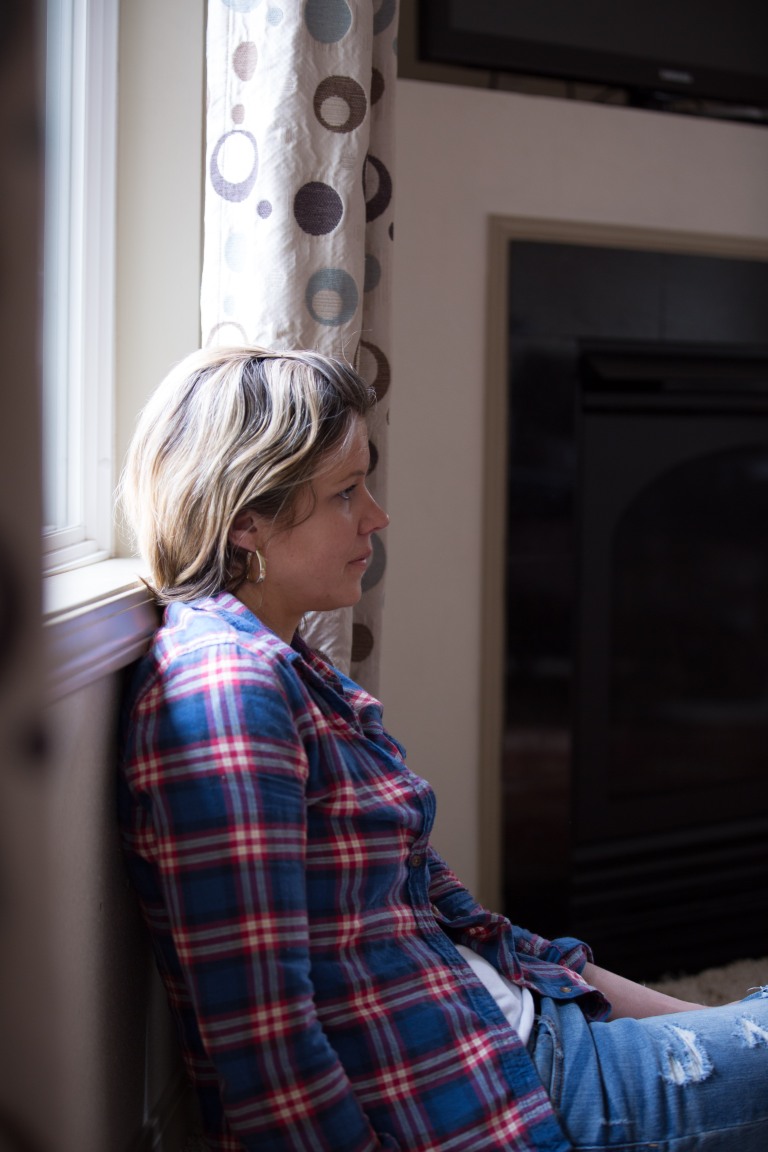
Early on in Quincy’s journey, I came to the understanding that if we were going to live our life well, then we were going to have to learn how to suffer well. Quincy’s condition was not something that could just be “conquered.” We couldn’t just fix it and go on like normal. Whatever that looked like, I didn’t know. I just knew I wanted to do it well. A part of that is learning to expect hard things and not freak out. I’ve learned to recognize that there are a lot of things in life that I can’t control, but there are also some things I can. I may not be able to change my circumstances, but I can ultimately choose what kind of person I want to be and what it does in my life. Is this going to make me kinder and more compassionate or is this going to make me bitter and angry? This is where I get to take control of my life and I get stubborn about it: I can’t control everything, but goshdammit, I’m going to control this! I get to decide who I’m going to be! It sounds simplistic, but its actually very hard work. This year I’d say I’ve failed miserably at it. At times I’ve just gotten so tired and just wanted to wallow in pity. But I still have to fight against that. It’s a lot of work, but it’s something I’m committed to.
If I could hand out any kind of encouragement, it would be this: breathe in suffering. Feel it, acknowledge it, accept it, and then breathe out compassion and kindness. Embrace suffering in some capacity, where you’re not just ignoring it, but you’re actually feeling it, then to turn it into something that’s going to help you become more compassionate to others. It’s this practice that has kept me alive. It has kept me breathing. It’s the only control I have. Otherwise, you just sink underneath it. In the hospital room, you just want it to swallow you up, which is fine and normal, but then you get to the place again where you can breathe in and out again. Breathe in. But also, breathe out.

_______________________________________________________________________________________
If you would like to contact Jody directly, you can email her at: jodylanders@gmail.com
Photos taken by Chris Telfer and courtesy of the Landers Family.




“Beautiful people do not just happen.” -Elisabeth Kübler-Ross And the Landers Family is just chock-full of beautiful people. Love you.
LikeLike
Thank you for BEing so Brave for your son and the rest of us walking in your shoes. It is not an easy road. So thankful to have read your beautiful story. May the peace of God continue with you on this journey!
LikeLike
Wow. Thank you for sharing your life with us. To say that this story provided some much needed perspective would be an understatement. Thank you for blessing us through your suffering.
.
LikeLike
We love you guys and miss you very much. We often think about what the kids are doing and how much they are changing as they so rapidly grow up. I often think of the tractor rides, the bonfires, the kids howling to get the coyotes howling and the malts at the kitchen sink. We do love and miss those kids and you.
LikeLike
Such an inspiring story of facing whatever God throws at you and doing it with grace, compassion and true love. I take my hat off to this family. They are true examples of what life should be all about. I wish you all God’s Blessings.
LikeLike